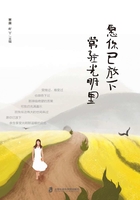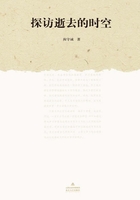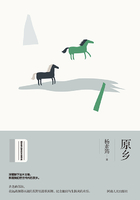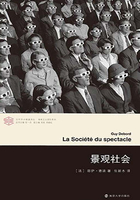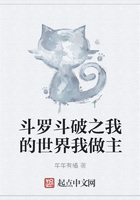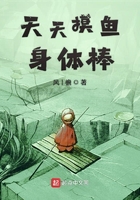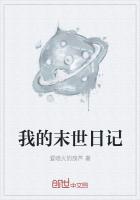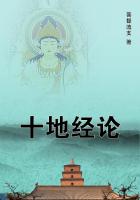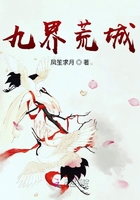Ian McEwan, one of the foremost contemporary novelists in Britain, believes that the novel is a mode of enquiry into human nature. He insists that empathy is at the core of humanity and the beginning of morality. McEwan's concern for empathy and morality finds its expression in his novels. However, so far little research has been systematically carried out on empathy among characters in McEwan's novels. The emphasis on the moral function of empathy can be dated back to David Hume and Adam Smith in the 18th century. Since then some philosophers in phenomenology, psychologists and theorists of the ethics of care have stressed the importance of empathy in human life. This book launches a critical study of McEwan's works from the perspective of empathy in the framework of ethical criticism. Through a systematic examination of various types of empathy demonstrated among the characters in McEwan's six major novels, and of the relevant ethical problems between self and others, it aims at revealing McEwan's insights into human nature.
Chapter One explores the relations between deficiency in empathy and the emergence of violent behaviour. Positioning individuals in their specific political and historical situation, McEwan explores links between empathy deficiency and violence through analyzing the ways in which characters reveal their violent human nature as a result of empathy erosion, empathy fragility and empathy exhaustion. He approaches the grand European history through subtle descriptions of individuals in their historical context, thus fusing his exploration of human nature with the violent history of the 20th century. In The Innocent, which is set in Berlin in 1955 at the height of the Cold War, McEwan exposes the violent potential hidden in human nature and criticizes the ideology and military violence which contribute to an individual's empathy erosion through portraying how a gentle and introverted young Englishman becomes an extremely cruel man. Black Dogs explores empathy fragility after the Holocaust and reveals the dark violent desire of human beings by indirectly representing prison camp atrocities through aesthetic transgression. In Atonement, McEwan subverts the beautifying narrative of the Dunkirk retreat in national memory through the vivid description of war violence from a soldier's perspective. The soldiers who witness violence in the battlefield tend to suffer from empathy exhaustion which makes them reveal the “banality of evil”, with human nature's violent potential reflected in the pathological madness of warfare in the battlefield. McEwan believes human beings should confront violence in history and admit the potential for violence in human nature so that we might strive for a better, peaceful future for all humankind.
Chapter Two analyzes how barriers to empathic understanding have caused estranged relationships among lovers or married couples. In McEwan's novels, though the lovers or couples love each other, they fail to practise empathic understanding in their relationships as a result of their narrowed view related to their respective gender identity, cognitive paradigm and value orientation. Some protagonists try to empathize with their partners, but they fail to have access to the alterity of their partners emotionally or cognitively due to the limitations of the self-centered cognitive framework related to their pseudo-empathy, which finally leads to their emotional estrangement. In Enduring Love the male protagonist Joe, after the emotional and moral trial of a traumatic accident, is unwilling to reveal his fragile feelings of guilt to his lover Clarissa. Instead, he is obsessed with his self-concern to reconstruct his masculinity in the hope of impressing Clarissa. Though Clarissa once tries to approach Joe in the manner of empathic understanding, she does not get an empathic response from Joe. Joe's closed male self hinders the empathic understanding and communications between him and Clarissa. In Black Dogs the narrator's parents-in-law, who have different cognitive paradigms and value orientations, suffer from years of emotional estrangement as the result of each one's negation of the other's alterity. McEwan exposes the self-centeredness in human nature implied in the failed empathic understanding and failed communications among the protagonists. Usually people tend to approach others from their own self-centered cognitive perspective with insufficient respect or tolerance for the alterity of the Other, trying to reduce the Other to the same in a violent way. Even the intimate relationship of couples and lovers is no exception.
Chapter Three discusses the relationship between empathizing with others and the ethical existence of the self by focusing on The Child in Time, Atonement and Saturday. McEwan in these novels explores the way that the characters transform from a lack of empathic concern to the enhancement of empathy for others. These protagonists are on their way to approaching an ethical existence by showing the empathic understanding and empathic care of others. The protagonist in The Child in Time becomes trapped in narcissistic concerns after experiencing the trauma of losing his child but ultimately recovers from this trauma by showing empathic understanding and care for relatives and friends. The adolescent protagonist in Atonement suffers from not being empathically nurtured since childhood by her parents in a dysfunctional family. Based on her arbitrary interpretation of others in her self-centered interpretative framework, Briony causes an innocent person to suffer years of imprisonment as a result of her false accusation. As she grows older, her capacity for empathy becomes stronger and she tries through writing a novel both to make atonement and to get an empathic understanding of others' alterity, increasing her ethical awareness. The protagonist in Saturday, first obsessed with concern for a separated self in Levinas's words, and indifferent to the marginalized, finally extends his empathic care to strangers, thus approaching the ethical subjectivity of a responsible agent. What McEwan affirms is the possibility of an ethical existence for human beings through the care of others. In other words, McEwan celebrates the positive side of human nature trying to seek an ethical solution to the violent conflict between self and others in the contemporary post-“9·11” world.
This book explores different types of empathy in relation to complex moral and ethical issues in McEwan's novels. There is moral failure when individuals regard others as objects to realize their violent desire, revealing violence in human nature that results from empathy deficiency, or lack of empathy toward others. Usually empathy finds its expression to some degree in intimate gender relationships. However, there are barriers to empathic understanding in the ethical implications of a lack of perspective taking. Thus the couple or lovers fail to affirm or tolerate each other's alterity. When a person strengthens his empathy as his cognitive ability develops, extending the empathic care beyond his relatives, friends, and acquaintances to strangers, he assumes the infinite responsibility towards others as an ethical response to the call of the face of the Other, which constitutes ethical subjectivity in Levinas's terms. Approaching empathy in McEwan's novels, we catch a glimpse into how individuals experience the development from a lack of empathy toward others, to an empathic understanding, to the assumption of an infinite responsibility for others. McEwan exposes human nature's violent potential and the weakness of self-centeredness, while he also celebrates the side of human nature that shows care for the interest of others. He is optimistic about the future of humankind.
Hailed as the most technically accomplished of all modern British writers, McEwan portrays human beings' actions and thoughts under different circumstances to reveal the complexity of behavior and motivation. However, he never gives readers any clear moral guidance. What he is attempting in his writing is to investigate the possibility of human potential and human nature in an open-ended way. What McEwan repeatedly stresses as ethically important is individuals' empathy towards others, and consequently we find an emphasis on the open possibility of human beings' ethical existence throughout his novels.

